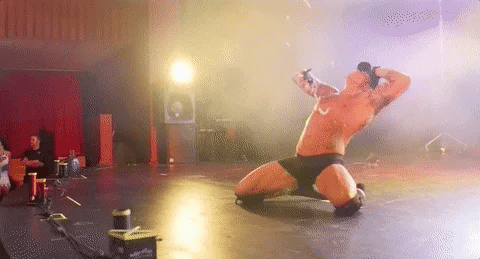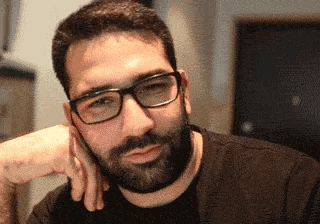
Best Answer: How to Tell if Your Boyfriend Might Be Secretly Gay
Team2boisTell and talk: Share the spark
Understanding Your Boyfriend: A Guide to Communication and Sexuality
Hey there! If you're reading this, you might be wondering about your boyfriend's sexuality. It's a sensitive topic, but don't worry - we're here to help you navigate these thoughts and feelings in a respectful and understanding way.
The Importance of Open-Mindedness
Before we dive in, let's remember that sexuality is a complex and personal aspect of human identity. It's not always black and white, and it can be fluid for some people.
The "signs" we'll discuss aren't definitive proof of someone's sexuality - they're just potential conversation starters. The goal here is to promote understanding and open communication, not to jump to conclusions.
Possible Signs to Consider
-
Lack of Physical Intimacy: If your boyfriend seems uninterested in physical affection or intimacy, it might be worth a conversation. However, remember that this could be due to many reasons, not just sexuality. Stress, depression, medication, or even just a naturally low sex drive could all be factors.
- Example: Maybe he's not into holding hands in public or seems to avoid kissing. It's worth talking about, but don't assume it's about sexuality right away.
-
Secretive Behavior: Is he overly protective of his phone or social media? While privacy is important in any relationship, extreme secrecy might be a red flag for various reasons. This could indicate he's hiding something, but it doesn't necessarily mean he's gay.
- Example: If he never leaves his phone unattended or gets nervous when you're near his computer, it might be worth a gentle conversation about trust in your relationship.
-
Close Male Friendships: Does he have very close male friends? This alone doesn't mean anything - close friendships are healthy and important! But if he seems more emotionally connected to them than to you, it might be worth discussing.
-
Example: It's great if he has a best buddy, but if he's constantly canceling plans with you to hang out with his male friends, you might want to talk about balance in your relationship.
-
Interests and Hobbies: While interests don't define sexuality, if your boyfriend is very invested in typically LGBTQ+ centered media or events, it could be worth a conversation about his connection to the community.
- Example: Maybe he never misses an episode of RuPaul's Drag Race or is super excited about Pride events. This doesn't mean he's gay, but it could be an opportunity to discuss his interest in LGBTQ+ culture.
-
Past Relationships: Has he dated men before? Or has he never had a serious girlfriend? This history might provide some context, but it's not definitive. Some people realize their sexuality later in life, while others might have dated the opposite gender despite knowing they were gay.
- Example: If he's never seemed interested in dating before you, or if he's mentioned past experiences with guys, it might be worth a respectful conversation about his journey of self-discovery.
-
Reaction to LGBTQ+ Topics: How does he react when LGBTQ+ topics come up? Extreme negativity or defensiveness could sometimes (but not always) indicate internalized homophobia. On the flip side, if he's exceptionally knowledgeable or passionate about LGBTQ+ rights, it might be because the topic personally resonates with him.
-
Example: If a gay character appears in a TV show, does he seem uncomfortable or change the channel? Or does he engage in the storyline with interest? Neither reaction definitively indicates his sexuality, but they could be starting points for a conversation.
-
Physical Reactions: Does he seem to notice or appreciate male attractiveness more than female? This isn't a definitive sign, as many straight men can appreciate male aesthetics, but it could be something to consider in the larger context.
-
Example: If he often comments on how handsome certain male celebrities or friends are, but rarely notices female beauty, it might be worth a non-judgmental conversation about attraction.
What to Do?
Don't Jump to Conclusions: These "signs" aren't proof of anything. Many straight guys might show some of these traits. It's crucial not to accuse or assume based on stereotypes or isolated behaviors.
Communicate Openly: The best approach is always honest, kind communication. If you have concerns, talk to him about them. Choose a private, comfortable setting and use "I" statements to express your feelings without blaming.
Example: "I've been feeling a bit insecure lately, and I wanted to talk to you about our relationship. Can we have an open conversation about our feelings and expectations?"
Be Supportive: If your boyfriend is questioning his sexuality, he might be scared or confused. Show him you care, no matter what. Let him know that your relationship is a safe space for honesty.
Example: "I want you to know that I care about you, and you can talk to me about anything. Your happiness and well-being are important to me."
Respect Privacy: Don't snoop or try to "catch" him. That'll only damage trust. If you feel the need to investigate, that's a sign that you need to have a conversation instead.
Seek Support: If you're struggling with these thoughts and feelings, it's okay to seek help. Talk to a trusted friend, family member, or consider speaking with a counselor or therapist. They can provide an outside perspective and help you process your emotions.
Educate Yourself: Learn more about sexuality and the LGBTQ+ community. Understanding more about sexual orientation can help you approach the situation with empathy and knowledge.
Consider Couples Counseling: If you're having trouble communicating about these issues, a professional counselor can provide a safe space and guidance for both of you to express your feelings and concerns.
Remember
- Sexuality isn't black and white. Your boyfriend might be bisexual, pansexual, or still figuring things out. Or he might be completely straight! Don't try to force him into a box.
- Even if your boyfriend is gay, it doesn't mean he doesn't care about you. He might be confused or scared too. Coming out can be a difficult process, and some people take longer to understand their own feelings.
- Your feelings are valid. It's okay to feel hurt, confused, or scared. These are natural reactions when you're unsure about your relationship.
- Trust your instincts. If something feels off in your relationship, it's worth addressing, regardless of whether it's related to sexuality or not.
- It's not your job to "fix" or change someone. If your boyfriend is gay, that's not something that can or should be changed.
- You deserve to be in a fulfilling relationship where both partners can be their true selves. If your boyfriend is gay, it might be painful, but ultimately, it's better for both of you to be honest.
- The most important thing is to approach this situation with kindness, both for yourself and your boyfriend. Open, honest communication is key in any relationship. If you're worried, the best thing to do is to talk to your boyfriend in a non-judgmental way.
Remember, this conversation isn't about confronting him or demanding answers. It's about creating a safe space where both of you can express your feelings and concerns. Be prepared to listen as much as you talk.
Stay strong, be kind, and remember - everyone deserves to live their truth, whatever that may be! Your worth isn't defined by your relationship status or by your partner's sexuality. You are valuable and deserving of love, no matter what.
If you find that this situation is causing you significant stress or anxiety, don't hesitate to seek professional help. A therapist or counselor can provide valuable support and guidance as you navigate these complex emotions.
Good luck and remember - you've got this!















